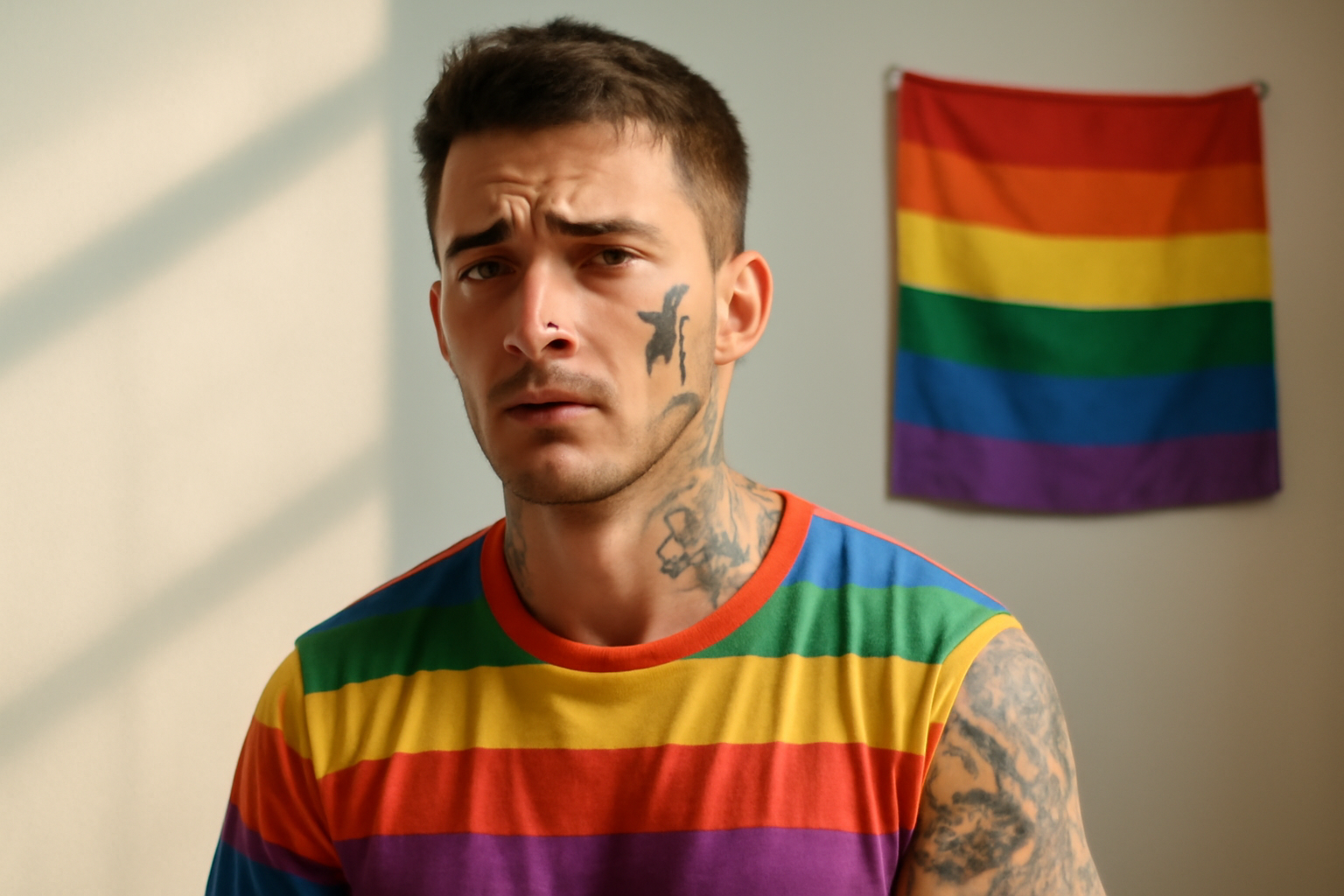
An LGBTQ+ artist from Venezuela, seeking asylum in the United States, has reportedly been deported and "disappeared" by U.S. authorities. The individual, who fled persecution in Venezuela, is caught in a controversial and disheartening situation. His tattoos have been misinterpreted by U.S. Immigration and Customs Enforcement (ICE) as signs of affiliation with a terrorist group, resulting in his deportation without a trial or hearing.
Tattoo Misinterpretation Leads to Deportation
The artist's lawyer, Lindsay Toczylowski, founder and president of the Immigrant Defenders Law Center, has raised serious concerns over the handling of her client's case. According to Toczylowski, ICE agents used photographs of the artist's tattoos as evidence to accuse him of being linked to the Tren de Aragua, a Venezuelan organization deemed a terrorist group by U.S. authorities.
Toczylowski insists that the tattoos are benign and unrelated to any criminal activity. "Our client was involved in the arts in Venezuela and is part of the LGBTQ+ community," Toczylowski stated. Despite the unfounded accusations, ICE proceeded with deportation, leaving the legal representatives and family of the artist in the dark about his whereabouts.
Legal Battles and Human Rights Concerns
This situation highlights the ongoing tension between the current U.S. administration and immigration advocacy groups. The administration has been accused of using immigration laws like the Alien Enemies Act to justify the mass deportation of individuals deemed as threats, often without substantial evidence or due process.
The Alien Enemies Act, originally enacted in 1798, allows for the deportation of foreign nationals deemed hostile to the U.S. during times of conflict. Critics, however, argue that no official conflict has been declared by Congress, rendering the use of this act questionable and potentially unlawful.
U.S. District Judge James Boasberg recently ordered the administration to halt deportations under this act and provide information on deportation flights. The administration, however, has defied this order, claiming executive authority over the judiciary. This defiance has sparked fears of a constitutional crisis, as the administration continues its deportation efforts unabated.
Judicial and Public Reactions
The president's social media denouncement of Judge Boasberg as a "radical left lunatic" has further inflamed tensions, prompting calls for Boasberg's impeachment by some political figures. In response, U.S. Supreme Court Justice John Roberts issued a statement emphasizing that impeachment is not a valid response to judicial disagreements and underscoring the importance of respectful discourse surrounding judicial decisions.
"Public officials certainly have a right to criticize the work of the judiciary," Roberts stated, "but they should be mindful that intemperance in their statements when it comes to judges may prompt dangerous reactions by others." His cautionary words serve as a reminder of the delicate balance of power within the U.S. government and the need for cooperation and respect among its branches.
The situation has drawn widespread attention from human rights organizations and LGBTQ+ advocacy groups, who are calling for transparency and justice for the disappeared artist and others affected by similar actions.
Impact on the LGBTQ+ Community
This case underscores the precarious position of LGBTQ+ asylum seekers and immigrants, who often face heightened vulnerability and discrimination. The use of tattoos, a significant form of self-expression and identity within many communities, as a basis for criminal accusations highlights the deep-seated prejudices and misunderstandings that can pervade immigration enforcement practices.
As the world watches, the artist's fate remains uncertain. His disappearance and the administration's continued defiance of judicial orders raise critical questions about the respect for human rights, the rule of law, and the treatment of marginalized communities in the United States.
For those advocating for justice, the fight continues to ensure that cases like this do not go unnoticed and that the voices of the vulnerable are heard and respected.
Stay informed on issues affecting the LGBTQ+ community by subscribing to our newsletter. Together, we can remain vigilant and support one another in challenging times.
Related Posts
Triumphant Trans Woman Wins Legal Battle and Inspires Others to Stand Up for Their Rights
Breaking new ground: a landmark victory in transgender rights After battling in courtrooms and enduring endless challenges, Diana Portillo, a transgender woman, has secured a monumental victory in her decade-long fight against workplace discrimination. The result? Nearly $1 million awarded in a historic settlement. But this isn't just a win on paper—it represents a powerful precedent in combati [...]
Pride Month in Latin America: Protests and Demands for Equality
**Celebrating Pride and advocating LGBTQ+ rights in Latin America** Pride Month in Latin America was a lively mix where celebration met activism. Communities united, not just throwing a party but making a stand—demanding equality and pushing governments toward better protection and rights recognition. Throughout Latin America, pride events erupted in marches and cultural displays, each with a c [...]
Transgender Erasure Actions Implemented by National Park Service
```html Trump administration's impact on national park service and transgender recognition The Trump administration made notable moves in undermining transgender representation, which included directing agencies like National Park Service not include "T" and "Q" when they refered “LGBTQ” in any official communication. This move seems part a broader plan by this administration aimed at reducin [...]